Table of Contents
“Focus on being productive instead of busy.”
Tim Ferriss, American podcaster, author and entrepreneur
If your office needs a bit of life, why not add some plants? Not only do plants improve the aesthetic of any space, but they also have proven benefits for productivity and stress levels. Here are some of the best office plants to increase productivity that is easy to care for and reduce stress at work.
Keep reading to learn more!
Amazing Benefits of Indoor Plants in the Office
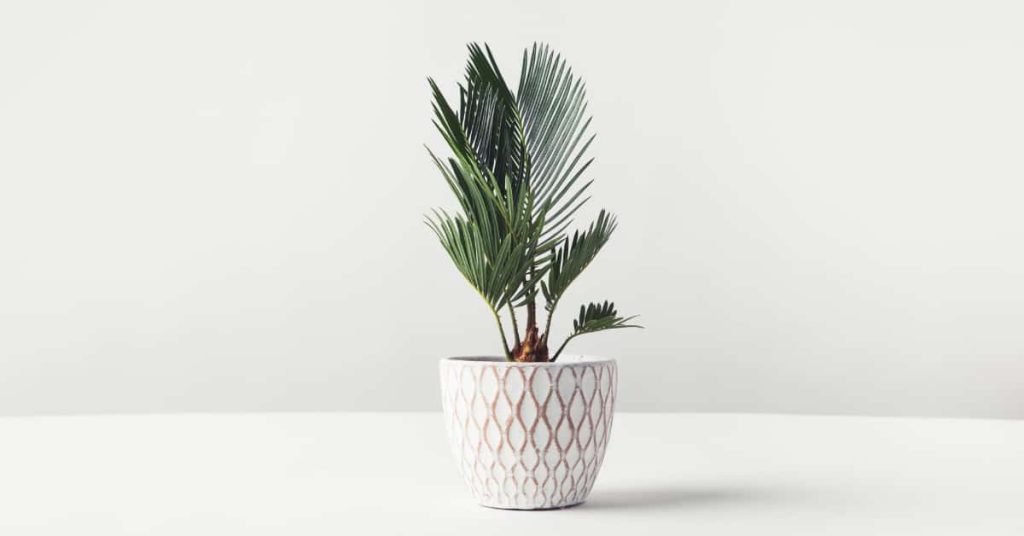
We all know that plants are good for us. They help to purify the air, boost our moods, and reduce stress levels. But did you know that plants can also improve our cognitive functioning and increase our productivity levels? That’s right – indoor plants are not just a pretty decoration for your office; they can help you get more work done.
Studies have shown that offices with plants tend to have more alert and focused employees. The presence of plants has also been shown to reduce error rates and increase task performance. If you’re seeking a way to boost your productivity at work, adding some indoor plants to your office is the right place to start.
Not only will you be more productive, but you’ll also enjoy a host of other benefits. Indoor plants help to improve air quality, lower noise levels, and reduce stress levels. They can also boost your mood and create a more positive working environment. So what are you waiting for? Start reaping the benefits of indoor plants.
Some of the benefits of indoor plants in an office setting include:
- Improved air quality.
- Reduced stress levels.
- Boosted mood and sense of well-being.
- Increased productivity and focus.
- Enhanced workplace aesthetics and ambiance.
Improved Air Quality
Having indoor plants in your workspace or office is a great way to improve air quality and create a more relaxing, productive environment. Plants are natural air purifiers, diffusing toxins and absorbing harmful gases in the surrounding atmosphere.
In addition, having plants in the room can noticeably reduce stress levels by helping to calm our brains with their peaceful green presence. So if you’re seeking an easy way to make your workplace more enjoyable and improve your overall performance, adding a few indoor plants is the way to go.
Not only will they help keep the air clean and free of pollutants, but they’ll also be a refreshing reminder of nature’s beauty throughout all your workdays.
Reduced Stress Levels
It’s no secret that plants can brighten up a room, but did you know that they can also help to reduce stress levels?
Studies have proved that spending time in nature can help lower stress hormone cortisol levels. However, not everyone has the time or ability to get outside on a daily basis. Indoor plants can provide many of the same benefits as their outdoor counterparts.
You can create a calm and relaxed atmosphere by bringing a bit of nature into your office. And, when it comes to choosing the proper plant for your space, there are many options to choose from. Whether you prefer low-maintenance succulents or vibrant flowers, an indoor plant is perfect for you.
So, next time you’re feeling stressed, try adding a few plants to your space. You just might find that you feel more relaxed and at ease.
Boosted Mood and Sense of Well-Being
Whether you’re facing a long day of meetings or just trying to unwind after a hectic week, there’s no doubt that it can be challenging to maintain your mood and sense of well-being.
The aromatic compounds produced by some plants, such as lavender, are known to have calming effects on the mind. Meanwhile, others like lemon balm are believed to possess antidepressant properties.
If you’re looking for the easiest way to brighten up your day, why not consider picking up a potted plant? Indoor plants make you feel more at ease and cheerful and add a touch of vitality to your home.
Increase Productivity and Focus
There is no doubt that spending hours at the office each day can be draining and stressful. Luckily, a number of office plants have been shown to help increase productivity and focus while reducing stress levels.
Some of the best plants for an office desk include peace lilies, ferns, pothos, and spider plants. These plants are low-maintenance, easy to care for, and add a decorative touch to the office.
Additionally, to being aesthetically pleasing, plants have been shown to improve air quality and reduce noise levels in the office. They can also help to increase morale and create a more positive work environment.
Enhanced Workplace Aesthetics and Ambiance
When it comes to embellishing the aesthetics and ambiance of a workplace, many employers overlook an important element: indoor plants. From ferns and orchids to palms and bonsai trees, these living organisms can breathe new life into any office environment.
Not only do they help to lighten up the space and create a more positive atmosphere, but they also give a number of other benefits.
A study by the University of Exeter found that people working in offices with plants reported higher levels of concentration and were more productive than those without plants.
If you’re looking for a simple way to make your workplace feel brighter, happier, and more inviting, adding some lush indoor plants is sure to do the trick.
How to Take Care of Your Indoor Plants for Maximum Beauty
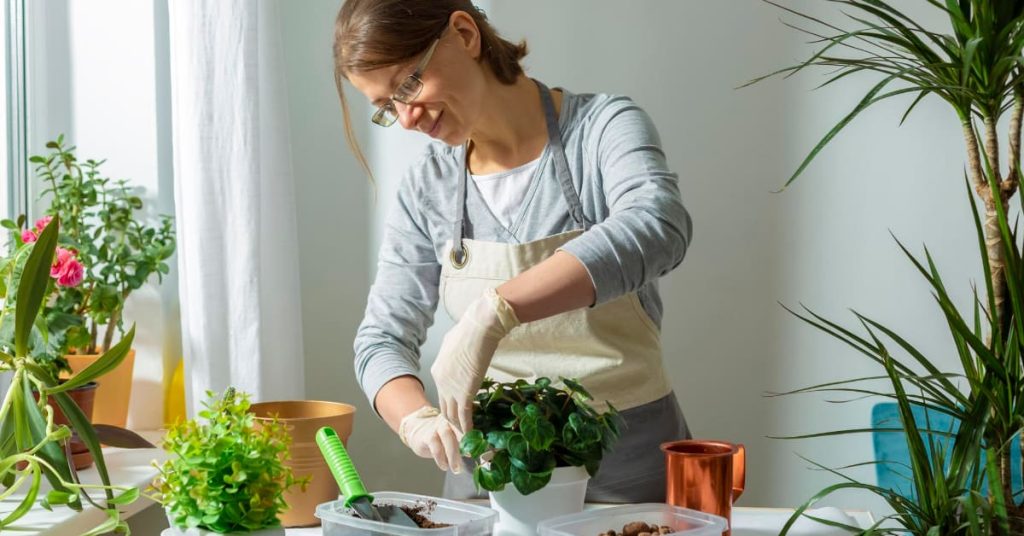
When taking care of your indoor plants, there are a few key things you should always keep in mind. These hints will help you take care of your plants in the best way possible.
- Get the perfect balance of water for your plants.
- Place them in a sunny spot.
- Fertilize your plants for better growth.
- Keep your plants looking their best.
- Quickly identify pests or diseases in your plants.
Get the Perfect Balance of Water for Your Plants
Water is crucial for plant growth and health. In order for plants to thrive, it is essential to maintain the right amount of moisture in their soil. Depending on your plant type, this can mean watering it more or less frequently.
A simple way to gauge whether your plant needs water is to check the soil. If the soil looks dry or feels crumbly, then that is a good indication that your plant needs good watering. However, it’s also significant not to overwater your plants; doing so can lead to root rot and other moisture-related problems.
To ensure optimal growth and development, be mindful of how often you water your plants and use common sense when assessing their needs. With the appropriate amount of water, you can help your plants reach their full potential.
Place Them in a Sunny Spot
Plants require sunlight to grow and flourish, so if you want your plants to flourish, it’s essential to place them in a sunny spot. Whether you have an outdoor garden or several indoor plants on your windowsill, it’s crucial that they’re getting enough exposure to sunlight each day.
When selecting the perfect spot for your plants, there are a few things to consider. First, you should examine the size and shape of your plant, as some varieties need more light than others.
You should also consider the direction of sunlight: depending on where you live and what season it is, the sun might not be directly overhead at all times.
Finally, ensure that nearby objects aren’t blocking any sunlight from reaching your plants. With these tips in mind, you can ensure that your plants get the direct rays they need to look their best.
Fertilize Your Plants for Better Growth
Fertilizing your plants is an integral part of plant care. Fertilizer provides nutrients that plants need to grow and stay healthy. Many different types of fertilizer are available, so it is vital to choose the right fertilizer for your plants.
You can buy plant fertilizer at your local garden center or home improvement store. Simply follow the instructions on the fertilizer packaging to properly fertilize your plants. With proper fertilization, your plants will be healthy and thrive.
Keep Your Plants Looking Their Best
As any gardener knows, keeping your plants looking their best takes a bit of work. This includes removing dead leaves and flowers and keeping your plants free from pests or diseases. Regularly examining your plants for any signs of stress will help keep them looking their best.
If you spot any problems, the sooner you address them, the better. For example, if you see a plant that is starting to wilt, you’ll want to check the soil to see if it needs more water. By taking good care of your plants, you’ll be rewarded with a healthy and beautiful garden.
Quickly Identify Pests or Diseases in Your Plants
If you notice any pests or diseases on your plants, it’s crucial to take action immediately. There are a variety of natural pest treatments and plant diseases that you can use to get rid of these issues.
Always read the labels exhaustively and follow the instructions to ensure the safety of your plants. With these simple tips, you can take care of your indoor plants for maximum beauty and health.
10 Trendy Indoor Plants for the Office

What are the best office plants? When it comes to indoor plants for the office, there are a variety of trendy options to choose from.
Whether you’re looking for plants that can help increase your productivity and reduce stress levels or simply want to give a splash of color and style to your workspace, these ten trendy office plants are sure to do the trick.
Here are ten popular indoor plants that are perfect for the office:
- Aloe vera
- Succulents
- Snake plant
- Spider plant
- Peace lily
- Money plant
- The lucky bamboo plant
- Ferns
- Areca palm
- Monstera
Aloe Vera
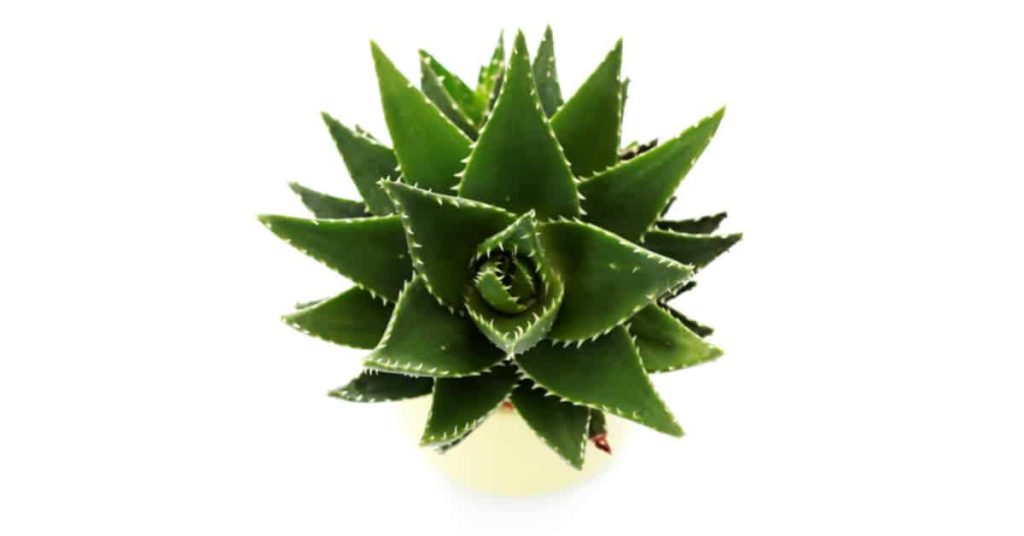
Aloe vera has long been titled a stress-reducing plant and has recently become a common addition to office spaces. This is due in part to the hardy nature of the plant, which thrives in warm, sunny conditions and is relatively easy to care for.
As someone new to indoor gardening, this makes aloe vera an ideal choice for setting up an office plant that will not require too much time or attention on your part. Simply select a pot that suits your space and provides the plant with plenty of sunshine and water, and you can look forward to its beautiful foliage and stress-relieving properties!
If you’re looking for a simple way to bring some greenery into your workspace, consider giving aloe vera a try.
Succulents
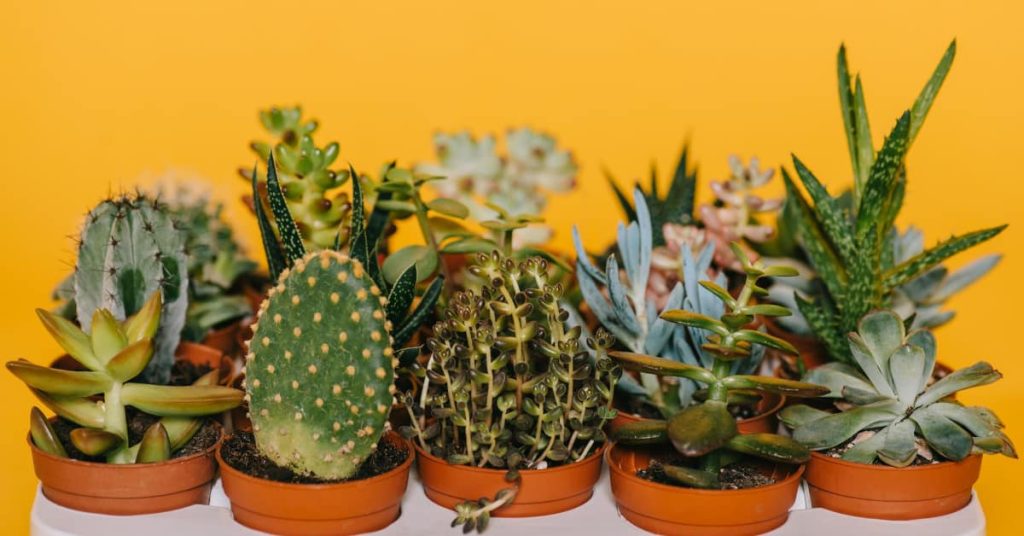
Succulents are a kind of plant particularly known for their thick, fleshy leaves. These plants store water in their leaves, which allows them to survive in dry environments. Moreover, to their low water needs, succulents also require very little maintenance.
They can be left for prolonged periods of time without being watered, and they are not susceptible to pests or diseases. As a result, succulents are an ideal plant for busy people or those without a lot of gardening experience.
In addition to their practical benefits, succulents also add a touch of style to any workspace. With their unique appearance, these plants can help to create a calm, modern aesthetic. If you’re looking for a plant that is both stylish and easy to care for, succulents are a perfect choice.
Snake Plant

The snake plant, also known as sansevieria, is a popular choice for the office due to its ability to cleanse the air and improve air quality. This plant is also easy to care for and can thrive in various conditions, making it an excellent choice for busy professionals on the go.
Snake plants are effective at removing harmful toxins from the air, such as formaldehyde and carbon dioxide. Additionally, they produce oxygen at night, making them ideal for bedrooms or other rooms where you want to improve air circulation.
Snake plants are also known for their resilience, being able to tolerate low light and infrequent watering. Snake plants can live for many years when cared for properly, making them a low-maintenance option for busy offices or homes.
Spider Plant
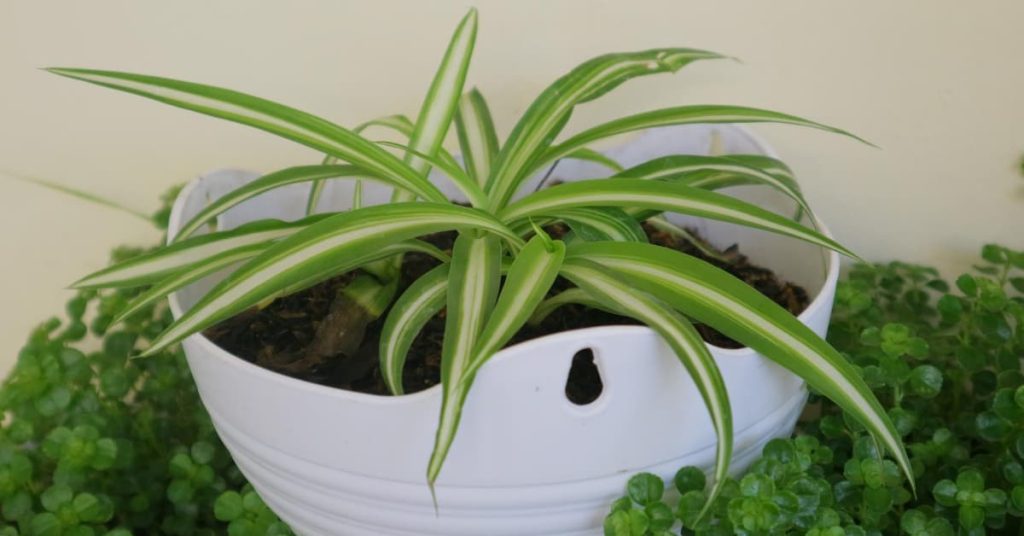
The spider plant is a popular pick for the office due to its ability to improve air quality and reduce stress levels. This plant is comparatively simple to care for and can adapt to various climatic conditions, making it a good choice for busy individuals.
The spider plant is known for its ability to absorb harmful toxins from the air, making it an ideal choice for offices with poor ventilation. Additionally, these plants are known to reduce stress levels and promote relaxation, making them a welcome addition to any workspace.
While spider plants are relatively low-maintenance, they require some primary care to thrive. These plants prefer bright, indirect light and should be watered regularly, allowing the soil to dry out somewhat between watering. With a bit of love and attention, spider plants make an excellent office companion.
Peace Lily
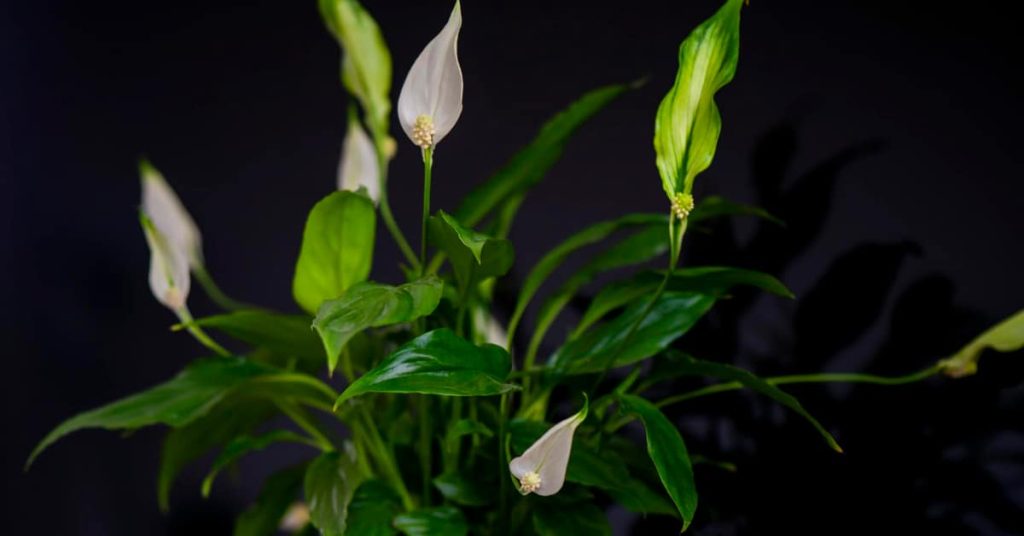
The peace lily is another well-known choice for the office, thanks to its lovely white blooms and low maintenance requirements. This plant requires minimal sunlight and water, making it an easy choice for anyone short on time or energy.
What’s more, the peace lily thrives in a variety of climates, from tropical regions to drier environments. This adaptability makes it an excellent option for offices all over the world, whether you are located in the hot tropics or the dry desert air.
If you’re searching for a beautiful plant that doesn’t require a ton of upkeep, look no further than the peace lily! With its elegant white blooms and easy-going nature, it truly is one of the good plants for any office setting.
These stylish indoor plants are sure to impress if you’re searching for a way to bring class and elegance to your workplace.
Money Plant
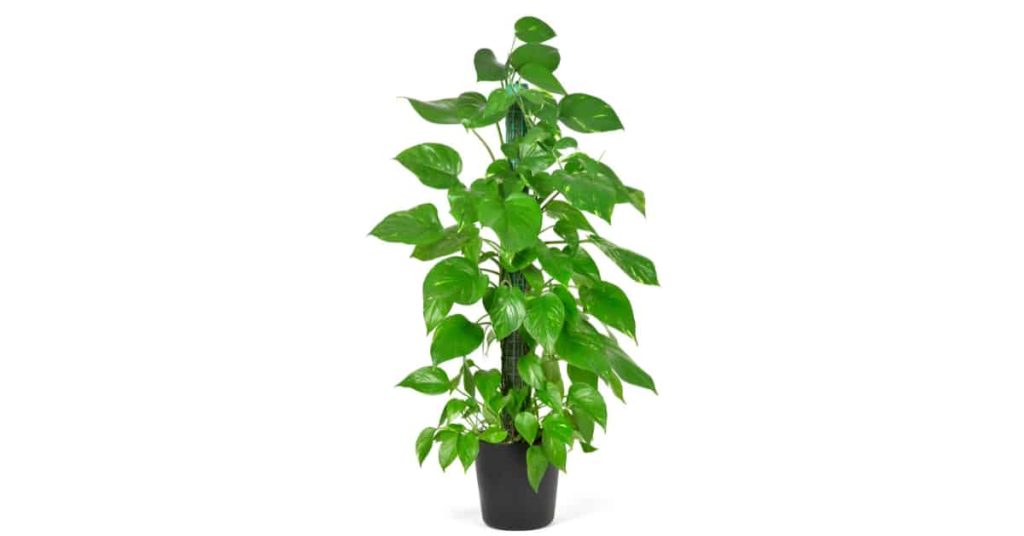
When it comes to office plants, the money plant is one of the best around. With its long, shiny leaves and vibrant green color, it is hard to miss and surely brings good luck and fortune to any workspace. And despite its lush appearance, this plant is actually quite low-maintenance.
It can thrive even in low-light conditions and needs very little water to survive. Whether you are looking for a simple way to brighten up your workspace, the money plant makes a wonderful addition to any home or office.
The Lucky Bamboo Plant
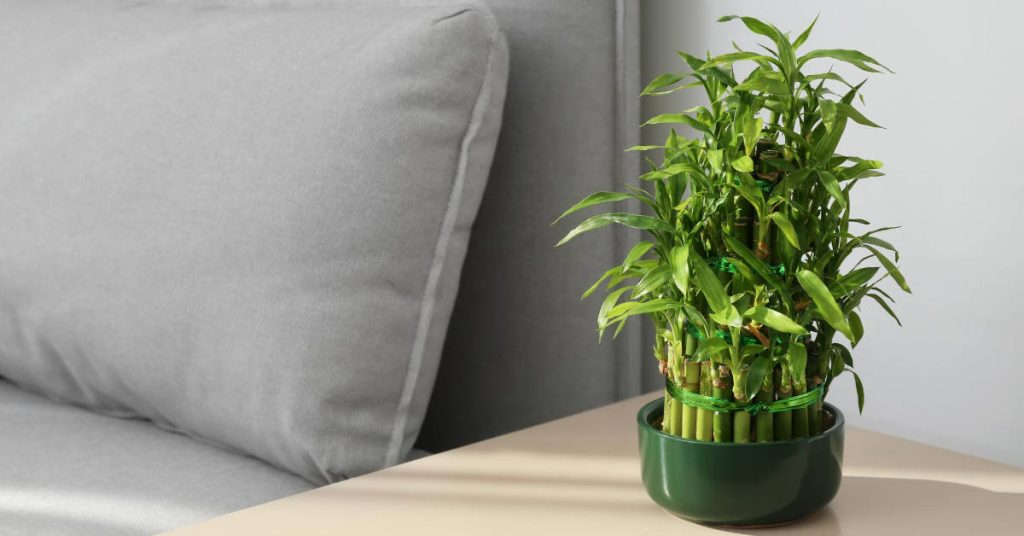
The lucky bamboo plant is one of the most popular choices for offices, as it is both low-maintenance and stress-reducing. Unlike many other plants that require a lot of attention and watering, this attractive little herb can thrive in indirect sunlight and needs only a shallow bowl of water to survive.
And since it’s commonly associated with good luck and fortune, the lucky bamboo is an ideal addition to any desk. Whether you’re swamped with work or feeling stressed, simply gazing at its slender green stalks can help provide some much-needed peace and calm. The lucky bamboo is the best choice if you’re looking for a hassle-free modern office plant.
Ferns
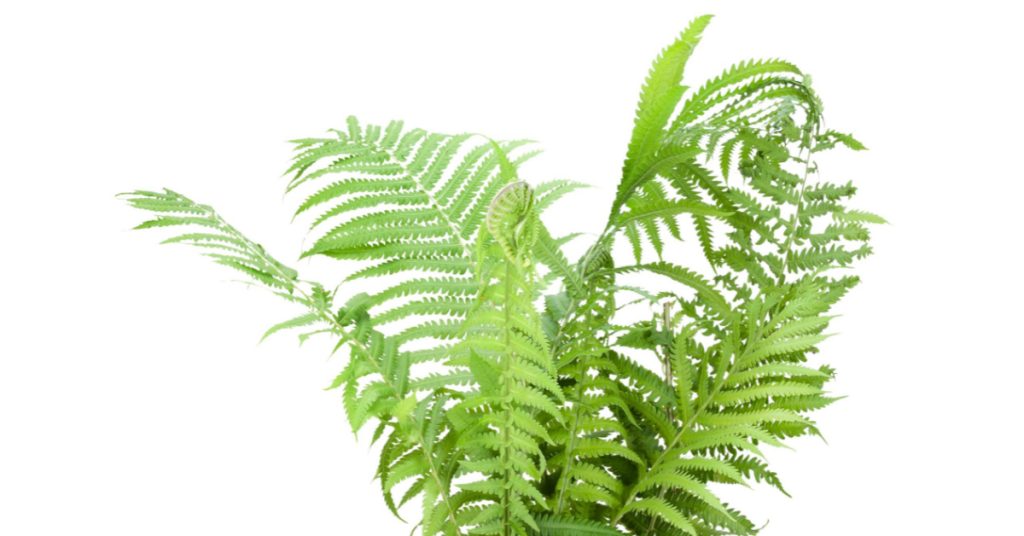
Ferns are the perfect office plant for anyone who wants to improve the air quality in their workspace. With their distinctive feathery leaves, these low-maintenance plants are adept at filtering out harmful toxins from the surrounding air.
They also demand very little sunlight and can thrive in various lighting conditions, making them ideal for small desk spaces or offices with limited natural light. Additionally, ferns are extremely easy to care for, requiring only minimal watering to keep them happy and healthy.
If you’re seeking a way to bring a little greenery into your work environment without any fuss, look no further than ferns! Whether you put one on your desk or plant a lush indoor garden, these lovely plants will help keep you feeling refreshed and rejuvenated daily.
Areca Palm
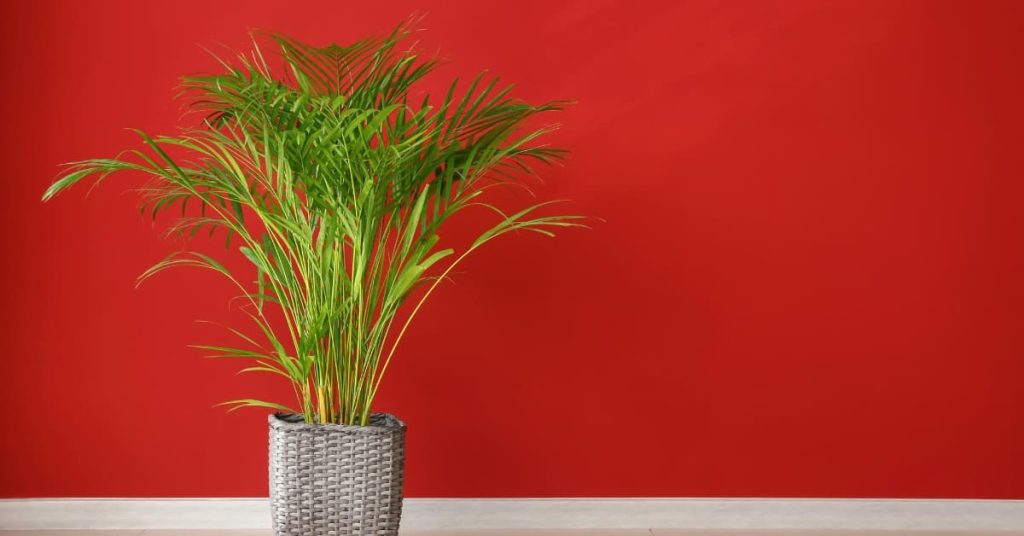
The Areca Palm is one of the most popular office plants for a reason. Not only is it beautiful and leafy, but it’s also very low maintenance. Unlike other potted plants, which can be challenging to take care of or may need frequent watering, the Areca Palm requires very little attention.
This makes it perfect for busy offices where staff have little time to tend to their plants between meetings and deadlines. In addition, the Areca Palm is well suited for indoor spaces – it tolerates both low light conditions and dry air without any problems.
So whether you work at a large corporation or a small start-up, the Areca Palm makes the perfect addition to your workplace environment. It will bring a touch of greenery to your office and help make your workplace more comfortable and relaxing for you and your coworkers. And who doesn’t want that?
Monstera

Monstera is one of the most popular houseplants out there, and for a good reason. This leafy plant is easy to care for and relatively low-maintenance, making it an ideal choice for those without a lot of gardening experience.
In addition, its elegant foliage lends a touch of beauty and sophistication to any room it graces, making monstera a favorite among interior designers and home decor aficionados. Whether you are looking to add some greenery to your home or simply need an attractive gift for someone special, monstera is sure to be a perfect choice.

Looking for the best curtains for the bedroom? Consider opting for a pair that will help you sleep better.
Do plants in the office good or bad?
Plants in the office, good or bad? There is no one answer to this doubt since it can depend on various factors, such as the type of plants in question and the office space layout.
However, some general benefits and drawbacks to having plants in the office are worth considering. On the plus side, plants can help to boost productivity by providing a more relaxing and natural work environment. They can also help to improve air quality and reduce noise levels.
On the downside, plants can be a potential safety hazard if they are not well-maintained and attract pests. Whether plants in the office are good or bad depends on the specific circumstances.
How close to windows can office plants be and still thrive?
However, office plants can be tricky to care for, and one of the most common questions is how close to windows they can be without suffering from too much sun.
The answer relies on the type of plant. For example, ferns and philodendrons prefer low-light conditions and should be kept away from windows, while succulents and cacti need bright light and can tolerate direct sunlight. Overall, as long as office plants are given the right amount of light and water, they should prosper no matter where they are located in the room.
Is there more attention needed on small office plants?
Most office plants are large, leafy specimens requiring significant care and attention. As a result, they often become more of a burden than a benefit. On the other hand, small office plants are much easier to maintain.
They can thrive in the most neglectful office environment with minimal watering and occasional pruning. In addition, their compact size makes them ideal for desktops and shelves.
As more and more people seek out low-maintenance office plants, it’s clear that there is a growing demand for smaller varieties. Consequently, companies should consider stocking a more fabulous selection of small office plants to meet their employees’ needs.
Which pot size is perfect for your indoor plant?
While there are many factors to consider when choosing a pot for your indoor plant, the essential thing is to pick a size that will allow the plant to flourish.
If the pot is too small, the roots will become crowded, and the plant will be stunted. Conversely, if the pot is too large, the plant will have difficulty taking up all the water and nutrients it needs.
The perfect pot size will depend on the type of plant you are growing and the size of its root system. With a little trial and fault, you should be able to find the perfect pot size for your indoor plant.
How much light is enough for an indoor plant?
One of the gardeners’ most common questions is how much light an indoor plant needs. The answer, unfortunately, is not always straightforward. The amount of light a plant need varies according to what plant it is and where and when it’s grown.
Most plants require at least four hours of direct sunlight each day. However, depending on the season and type, some plants may need more or less light.
If you are doubtful about how much light your plant needs, it is best to consult a gardening expert or look up specific care instructions for your plant.
So there you have it, the best office plants to help increase productivity and reduce stress. Adding one or more of these indoor plants to your workspace can create a more positive and productive environment. Hopefully, you’ve discovered some helpful tips for selecting the most delicate office plants for your area.






